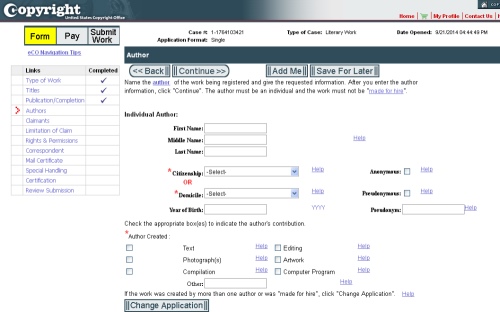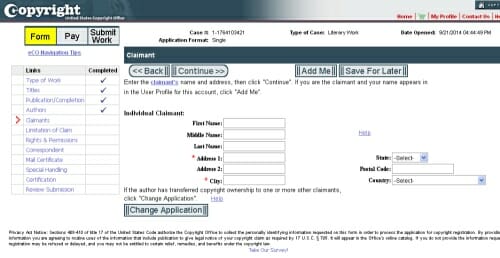Pen names, also known as pseudonyms and noms de plume, are more popular than ever. Like brand names, they are designed to be catchy, memorable and suited to the genre. Writers switch genders and nationalities. Plain-Janes leap into exotic personas. X-gens with hyphenated surnames opt for something short.
I am often asked if using a pen name is legal. Will a writer be accused of identity theft and fraud? Will he be sued if he uses the name of a real person?
Using a pen name is completely legal. In fact, it is often a wise business choice. But writers should take a few common-sense steps to avoid confusion and protect their rights.
Why Use a Pen Name?
Privacy
If you are a surgeon, do you want your patients to know you crank out high-body-count thrillers? If you dabble in bondage fiction, do you want to share that information with neighbors, employers, and your church group? Privacy is one of the main reasons writers choose pen names.
Branding
In deciding on pen names, writers try to evoke the right tone, whether it is mysterious, authoritative, or lovable. They may have different pen names for different genres. A writer with an audience in romance will choose a different pen name for a dark, dystopian fantasy. Writers who have bombed under one name start over with pen names.
Avoiding confusion
I recently co-wrote an ebook with Jessica Brown, and we discovered there are at least three other Jessica Browns selling books on Amazon. If a writer has a common name, or the same name as someone famous, a pen name avoids confusion.
Easy-to-Read
The marketplace has changed. More people shop for books by scanning online thumbnails instead of browsing bookstore aisles. Writers are selecting short pseudonyms that pop from the screen.
Collaborations
Two or more co-writers might pick a single name for publication.
How to Choose a Pen Name
Choosing a pseudonym is a creative process, and many writers find selecting a pen name more difficult that naming a character. The e-book Pen Name: How to Create Yours by Jennifer Blanchard lists 31 ideas for generating your perfect pen name and is worth a look.
Once you decide on a short list of possibilities, do the following:
- Research. A pen name should be unique. Research the internet and bookselling sites. Avoid any name already used by a writer, since that is likely to confuse readers. Do not use the name of anyone famous. If you write a book under the pen name Taylor Swift or Derek Jeter, you may be accused of trying to pass yourself off as the celebrity. I also suggest a trademark search through the U.S. Trademark Office. If you use the name of registered trademarks, you risk getting a cease-and-desist letter. Search for available domain names, because you want to buy a domain for your pen name.Try to avoid using the name of a real person. If you happen to use the name of a real person, you are not committing identity theft. Identity theft involves intentionally acts to impersonate someone for financial gain. But if your writing affects the real person’s life, consider changing your pen name.
- Claim the name. Buy the domain name. Also file a Fictitious Business Name Statement if you will be getting payments made out to your pen name. I explain the process in my blog.
- Use the name. Place the pen name on your cover and your copyright notice, © 2014 [your pen name] . Some authors put the copyright notice in both their pen name and real name, but it is not necessary.
- Be open with your publisher. Usually, you will not be able to hide your real name from your publisher since contracts are signed in your real name. The exception is when you form a corporation, LLC, or other entity (as I describe below), but even then, most publishers want to know their authors.
- Register your copyright. You may register the copyright of your work under your pseudonym, your real name, or both. Here is the screen shot of the registration application page for identifying the Author.
(Click to enlarge image.)

If you write under a pseudonym but want to be identified by your legal name in the Copyright Office’s records, give your legal name under Individual Author and click on Pseudonymous and provide your pen name/pseudonym as well.
If you do not want to have your real identity revealed in the Copyright Office’s records, then click on Pseudonymous only and insert your pen name. Leave Individual Author blank. If you fill in your name, it will become part of the Office’s online public records, which are accessible on the internet. The information cannot later be removed from the public records.
Same choice on the next page of the application. You may identify the Claimant in your pen name or real name.
(Click to enlarge image.) 
I recommend that authors register their pseudonymous works under both their real names and pen names. This creates a permanent record of ownership, and few readers are going to research copyright records and find out.
There are downsides to registering the copyright under a pseudonym only. First, it may prove difficult to prove ownership of the work at a later date. Second, the life of the copyright will shorter: 95 years from the year of first publication or 120 years from its creation, instead of 70 years after your death.
What Not to Do When Using a Pen Name
- Don’t go overboard in creating a fake identity. Never claim credentials you don’t have. Be cautious about creating a fictitious bio. If you are exposed, your readers may feel betrayed and dump you.
- Don’t use a pen name to avoid a pre-existing contract. If you have granted a traditional publisher first-refusal rights or have signed a confidentiality agreement as part of a legal settlement or employment agreement, a pen name won’t change anything. You are still breaching your obligations.
- Don’t expect a pen name to protecting you from defamation claims. Most likely, you will be found out either through legal process or technology.
Decide How Secretive You Want to Be
Most authors find openness easier to maintain than secrecy. At book signings, they use their pen names, but at conferences they use their real names with a reference to their pen names. The web pages for their pen names are often linked. For example, Dean Kootz lists his various pen names on his website.
Some authors are more discreet. They try to maintain their privacy, but not to the point of lying. They don’t put photos on their books and blogs, do not link their websites, and limit public appearances.
Other authors put up roadblocks. They set up corporations and trusts to hold the copyrights and contracts. This is the most expensive alternative and may require an attorney. Even then, someone will know who is behind the corporation, and word may leak out. Remember what happened to J .K. Rowling? She tried to keep quiet about her pen name Robert Galbraith, but it was leaked by, of all people, her lawyers.
After all, there is something quite human about sharing secrets. Isn’t that what writers love to do? I believe it was Truman Capote who said, all literature is gossip.
By the way, did you know that Truman Capote is a pen name? Does anyone know his real name? Let me know in the comments.
Photo: bigstockphoto.com. Amazon links contain my affiliate code.





